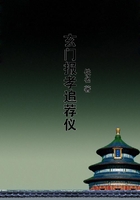In South Carolina all things conspired to uphold and strengthen the sense of the State as an object of veneration, as something over and above the mere social order, as the sacred embodiment of the ideals of the community. Thus it is fair to say that what has animated the heroic little countries of the Old World Switzerland and Serbia and ever-glorious Belgium--with their passion to remain themselves, animated South Carolina in 1861. Just as Serbia was willing to fight to the death rather than merge her identity in the mosaic of the Austrian Empire, so this little American community saw nothing of happiness in any future that did not secure its virtual independence.
Typical of the newer order in the South was the community that formed the President of the Confederacy. In the history of Mississippi previous to the war there are six great names--Jacob Thompson, John A. Quitman, Henry S. Foote, Robert J. Walker, Sergeant S. Prentiss, and Jefferson Davis. Not one of them was born in the State. Thompson was born in North Carolina; Quitman in New York; Foote in Virginia; Walker in Pennsylvania; Prentiss in Maine; Davis in Kentucky. In 1861 the State was but forty-four years old, younger than its most illustrious sons--if the paradox may be permitted. How could they think of it as an entity existing in itself, antedating not only themselves but their traditions, circumscribing them with its all-embracing, indisputable reality? These men spoke the language of state rights. It is true that in politics, combating the North, they used the political philosophy taught them by South Carolina. But it was a mental weapon in political debate; it was not for them an emotional fact.
And yet these men of the Southwest had an ideal of their own as vivid and as binding as the state ideal of the men of the eastern coast. Though half their leaders were born in the North, the people themselves were overwhelmingly Southern. From all the older States, all round the huge crescent which swung around from Kentucky coastwise to Florida, immigration in the twenties and thirties had poured into Mississippi. Consequently the new community presented a composite picture of the whole South, and like all composite pictures it emphasized only the factors common to all its parts. What all the South had in common, what made a man a Southerner in the general sense--in distinction from a Northerner on the one hand, or a Virginian, Carolinian, Georgian, on the other--could have been observed with clearness in Mississippi, just before the war, as nowhere else. Therefore, the fulfillment of the ideal of Southern life in general terms was the vision of things hoped for by the new men of the Southwest.
The features of that vision were common to them all--country life, broad acres, generous hospitality, an aristocratic system.
The temperaments of these men were sufficiently buoyant to enable them to apprehend this ideal even before it had materialized.
Their romantic minds could see the gold at the end of the rainbow. Theirs was not the pride of administering a well-ordered, inherited system, but the joy of building a new system, in their minds wholly elastic, to be sure, but still inspired by that old system.
What may be called the sense of Southern nationality as opposed to the sense of state rights, strictly speaking, distinguished this brilliant young community of the Southwest. In that community Davis spent the years that appear to have been the most impressionable of his life. Belonging to a "new" family just emerging into wealth, he began life as a West Pointer and saw gallant service as a youth on the frontier; resigned from the army to pursue a romantic attachment; came home to lead the life of a wealthy planter and receive the impress of Mississippi; made his entry into politics, still a soldier at heart, with the philosophy of state rights on his lips, but in his heart that sense of the Southern people as a new nation, which needed only the occasion to make it the relentless enemy of the rights of the individual Southern States. Add together the instinctive military point of view and this Southern nationalism that even in 1861 had scarcely revealed itself; join with these a fearless and haughty spirit, proud to the verge of arrogance, but perfectly devoted, perfectly sincere; and you have the main lines of the political character of Davis when he became President. It may be that as he went forward in his great undertaking, as antagonisms developed, as Rhett and others turned against him, Davis hardened. He lost whatever comprehension he once had of the Rhett type. Seeking to weld into one irresistible unit all the military power of the South, he became at last in the eyes of his opponents a monster, while to him, more and more positively, the others became mere dreamers.
It took about a year for this irrepressible conflict within the Confederacy to reveal itself. During the twelve months following Davis's election as provisional President, he dominated the situation, though the Charleston Mercury, the Rhett organ, found opportunities to be sharply critical of the President. He assembled armies; he initiated heroic efforts to make up for the handicap of the South in the manufacture of munitions and succeeded in starting a number of munition plants; though powerless to prevent the establishment of the blockade, he was able during that first year to keep in touch with Europe, to start out Confederate privateers upon the high seas, and to import a considerable quantity of arms and supplies. At the close of the year the Confederate armies were approaching general efficiency, for all their enormous handicap, almost if not quite as rapidly as were the Union armies. And the one great event of the year on land, the first battle of Manassas, or Bull Run, was a signal Confederate victory.















